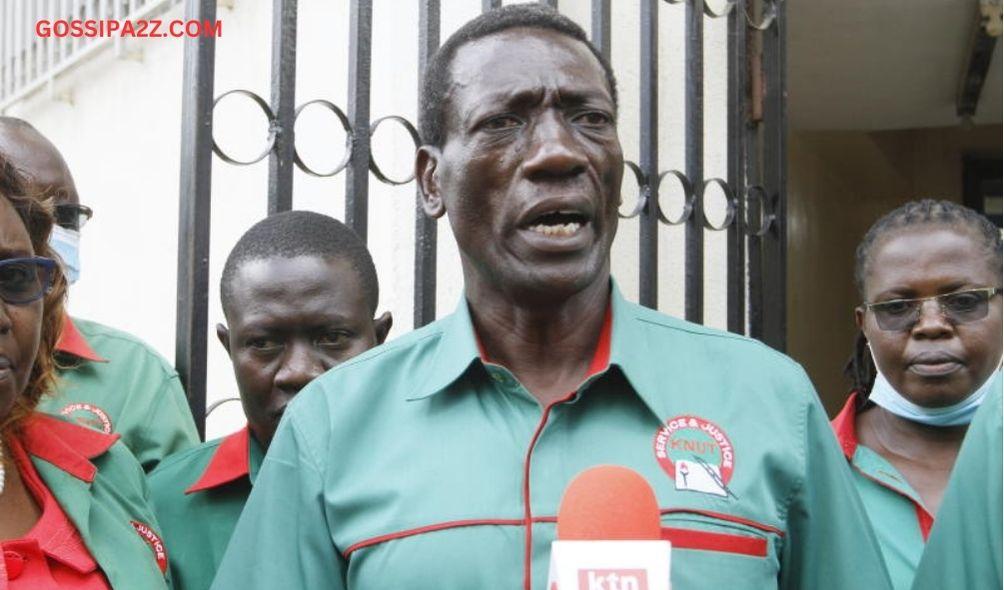Education Crisis Looms: KNUT Warns of School Shutdowns Due to Funding Delays
The Kenya National Union of Teachers (KNUT) is cautioning that school activities could come to a standstill soon due to the delayed allocation of funds for Free Primary Education and Free Secondary Education for the current year.
The union is requesting the prompt release of capitation funds to prevent a crisis in educational institutions.
KNUT officials are asserting their demand amidst complaints from numerous school administrators about the funding crisis, which they argue disrupts the seamless functioning of educational institutions.
Education Cabinet Secretary Ezekiel Machogu has provided reassurance that the funds will be deposited into school accounts within the following two weeks.
“Heads are crying, principals are crying the situation is pathetic,” said KNUT Secretary General Collins Oyuu.
The government had pledged to distribute Ksh.22,244 per learner every year, divided into three installments: 50% in the first term, 30% in the second term, and 20% in the third term.
However, less than a month before schools closed, only half of the first-term allocation had been distributed.
“50% of Ksh.22,244 is Ksh.11,122 but so far what we have received is Ksh.3, 877. Tuko na changamoto bado na tunaomba kama tunaeza kupata ile capitation second tranche kwa sababu madeni yanatusumbua,” said Oyuu.
In January of this year, the National Treasury declared the allocation of Ksh.31.34 billion. During that period, schools were owed over Ksh.87 billion for the financial years 2022/2023 and 2023/2024 by the government.
Suppliers have been pressuring schools due to payment delays, raising concerns among stakeholders about potential compromises to the quality of education. Day secondary schools, which rely entirely on capitation, are experiencing the most significant impact.
ALSO READ:
- Adidas vs Puma Feud to Become a TV Series with Support from Founders Families
- Shock as Gospel Star Ringtone Faces Charges in Ksh50 Million Runda Land Fraud
- NSSF Confirms Cyber Attack Attempt But Says Member Data Is Safe
- Tanzania Still Holding Kenyan Activist Boniface Mwangi and Ugandan Journalist Agatha Atuhaire – TLS President Clarifies
- Gachagua Mourns Fr Maina- Demands Justice After Sudden Death
“Maybe apart from lunch which is where parents pay, everything else in this capitation, there is the salaries of non-teaching staff, the salaries of the non-teachers… this is a term for co-curricular activities,” added the KNUT boss.
The union expressed that given the present conditions, the Ministry of Education’s instruction not to dismiss students due to unpaid school fees is unfeasible.
“97% of our students have reported back to school but the parents are pushing for us to have the students without them paying,” Oyuu noted.
“We want to appeal to the government, can we check on timely capitation to our schools so that learners remain in school so that heads are not seen as being biased…so that heads are not seen as going against the school policy…at times we are pushed to the wall.”
Educational administrators are additionally calling on the government to reassess the capitation amount, taking into account the inflation rates.
“The prices skyrocketed by more than 50% for example a bag of maize we were buying at Ksh.3,600…by close of the year it was around Ksh.8,000. A bag of sugar was Ksh.4,500, by the end of the year it was roughly Ksh.11,000 or Ksh.10,500,” added Oyuu.
Education Cabinet Secretary Ezekiel Machogu has provided reassurance that the funds will be deposited into the school accounts within two weeks.
“We gave the first quarter of capitation and I believe anytime from next week or the next week after we should be able to give the next quarter of capitation. I know schools have waited for this but in one or two weeks we should be able to have disbursed the funds,” Machogu said.
Education Crisis Looms: KNUT Warns of School Shutdowns Due to Funding Delays
